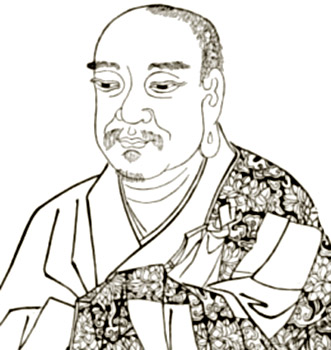 Vasubandhu (400 CE) according to Mahayana Buddhist tradition was an Indian Buddhist scholar monk and was the main founders of the Indian Yogacara School. Vasubandhu is one of the most influential figures in the history of religion of Buddhism.
He was a Brahmin who resided at Kaushambhi in Gandhara where he was trained in the orthodox Sarvastivada order of Buddhism.
Vasubandhu (400 CE) according to Mahayana Buddhist tradition was an Indian Buddhist scholar monk and was the main founders of the Indian Yogacara School. Vasubandhu is one of the most influential figures in the history of religion of Buddhism.
He was a Brahmin who resided at Kaushambhi in Gandhara where he was trained in the orthodox Sarvastivada order of Buddhism.
Vasubandhu rejected the Vaibhashika Buddhist view that one is directly aware of objects made up of real physical atoms. An atom is partless and indivisible. However if they come together they will have sides. If they combine, its extent will not increase. If there is no dimension, they cannot combine to form larger objects. If there is dimension, they will be divisible. The Sautrantika view was also rejected by him, which says that extra-mental reality can be supposed as the cause of perceptual sensations.
His view is that unenlightened people lead a life which is dominated by craving, aversions and delusions. Enlightened people realise that the world is a fabric of appearances and are free from desires, aversions and delusions. Awareness of a mind which is independent of the physical world is the product of habitual construction. People are by a mindset consisting of their inherited traits, attitudes, moods, emotions and memories. Constructing these purely subjective factors encourages detachment from everyday experience. He believes that individual cognitions in a mental series are aware of themselves. Reflexivity of consciousness shows that an idea can be the object of another idea and that there is no need to imagine physical objects as the causes of thoughts.
Vasubandhu wrote the Abhidharmakosha Bhashya. Other works include the Karmasiddhiprakarana, which says how karma works and is an attempt to reconcile atomistic impersonality with moral responsibility and consequentiality. The Madbyantavibhagashastra, the Trisvabbavanirdesha, the Vimsbatika and the Trimsbika are his other works. His most influential work in the East Asian Buddhist tradition has been Vimsatikavijnaptimatratasiddhi.
Vasubandhu also contributed to Buddhist logic and is held to have been the origin of formal logic in the Dharmic logic-epistemological tradition. He was a multifaceted thinker. He was a great genius, a philosopher and a human being who was filled with great compassion which is evident from his works.












